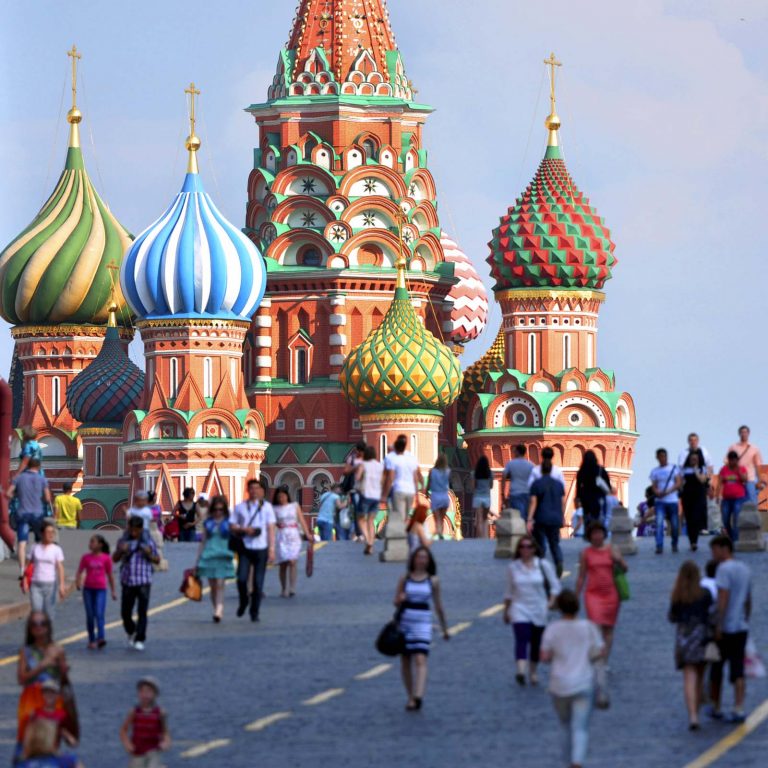Cryptocurrencies Not a Risk to Stability, Russian Study Concludes
source: Bitcoin News
2018. Jun. 08. 07:40

A study has found that despite their volatility, cryptocurrencies do not endanger the financial system and the economy of Russia, as the risks are offset by the highly concentrated ownership of digital assets. Crypto fluctuations are not believed to affect consumption either. Russian residents have controlled cryptocurrency worth between $7.5 and $14 billion in the first quarter of this year, according to estimates published in the report.
Also read: Russian Railways Eyes Crypto for Tickets, Blockchain for Cargo
Coins Compared to Commodities, Less Volatile than Some
The volatility of cryptocurrency rates is comparable to the price dynamics of foods, considered some of the most volatile commodities. Prices of products like meat, milk, and sugar can actually be much more volatile, according to a new study quoted by Russian media. It concludes that cryptocurrencies are not a threat to Russia’s financial stability.
Crypto volatility can affect the Russian economy much like the depreciation of the ruble, which leads to revaluation of the debt denominated in foreign currency, increased cost of borrowing, inflation expectations, and counterparty risks. The authors have calculated that crypto market fluctuations can increase the interest rate on domestic borrowings by about 1%, but that’s only if the share of virtual currencies in the structure of corporate debt reaches 4 trillion rubles, or at least 6% of the total.
According to the Russian Analytical Credit Rating Agency (ACRA), the high volatility of cryptocurrencies can potentially create risks for the country’s financial stability, but these are balanced by the high concentration of ownership of the digital assets. ACRA estimates that the market value of the cryptocurrency attributable to the Russian economy or controlled by Russian residents has been between $7.5 and 14 billion in the first quarter of 2018. That’s only 1-2% of the M2 money supply in Russia. The global ratio is even lower at 0.5%.
Comparison between the M2 money supply by countries and the market capitalization of cryptocurrencies, in trillion USD (Coin Dance, IMF, 2017)The study is based on statistics measuring the Russian share of the global economy and money supply, as well as data about the structure of the turnover registered on crypto exchanges. The researchers note that it is still quite difficult to accurately estimate the share of cryptocurrencies against the money supply in the country, as the assessment is limited by the opacity of the cryptocurrency markets, the anonymity of crypto users and the use of cryptocurrency in cross-border settlements.
The authors point out that a number of factors can influence the volume of cryptocurrency owned by the residents of a given country. These include the level of development of financial markets and venture investing, the central bank’s policies, the stability of the national fiat currency, the inflation dynamics, and the rigidity of government regulations. They believe that the increase of market capitalization of cryptocurrencies, their acceptance as unit of account, the introduction of liberal regulations for ICOs and crypto payments can stimulate growth in the sector.
Consumption Not Affected by Crypto Fluctuations
The experts at ACRA see very little chance of crypto volatility affecting consumption in Russia. They claim consumption will decrease only by about 1% if cryptocurrency price shocks cause a 6% drop in the volume of liquid savings. In current prices, this corresponds to approximately 1.5 trillion rubles. “However, due to the huge distortion in the distribution of crypto assets, their volatility is not reflected in consumer spending,” notes the report, quoted by Kommersant.
The analysts also say that if the use of cryptocurrency increases in Russia, the Central Bank can employ the same monetary policy instruments it currently applies in regards to foreign currencies. In case crypto markets remain opaque, digital currencies can be treated like foreign cash, and if the bank is successful in tracing crypto transactions, digital coins can be regarded as electronic foreign currency funds.
The Central Bank of Russia has previously opposed the legalization of cryptocurrencies as legal tender and unit of account. The legislation currently under review in Russia’s parliament can change that to a certain extent. It has been reported that some texts allow the use of tokens and coins in settlements, although, unlike the ruble, cryptos will not be considered a mandatory means of payment in the country.
Of the three drafts approved on first reading by the State Duma, the bill “On Digital Rights” deals with crypto payments. The other two, “On Digital Financial Assets” and “On Attracting Investments Using Investment Platforms”, aim to regulate initial coin offerings (ICOs), crypto mining and taxation. The proposed legislation describes cryptocurrencies and tokens as electronic property created with cryptographic tools.
Do you think price volatility hampers the wider adoption of cryptocurrencies? Tell us in the comments section below.
Images courtesy of Shutterstock.
Verify and track bitcoin cash transactions on our BCH Block Explorer, the best of its kind anywhere in the world. Also, keep up with your holdings, BCH and other coins, on our market charts at Satoshi’s Pulse, another original and free service from Bitcoin.com
The post Cryptocurrencies Not a Risk to Stability, Russian Study Concludes appeared first on Bitcoin News.





